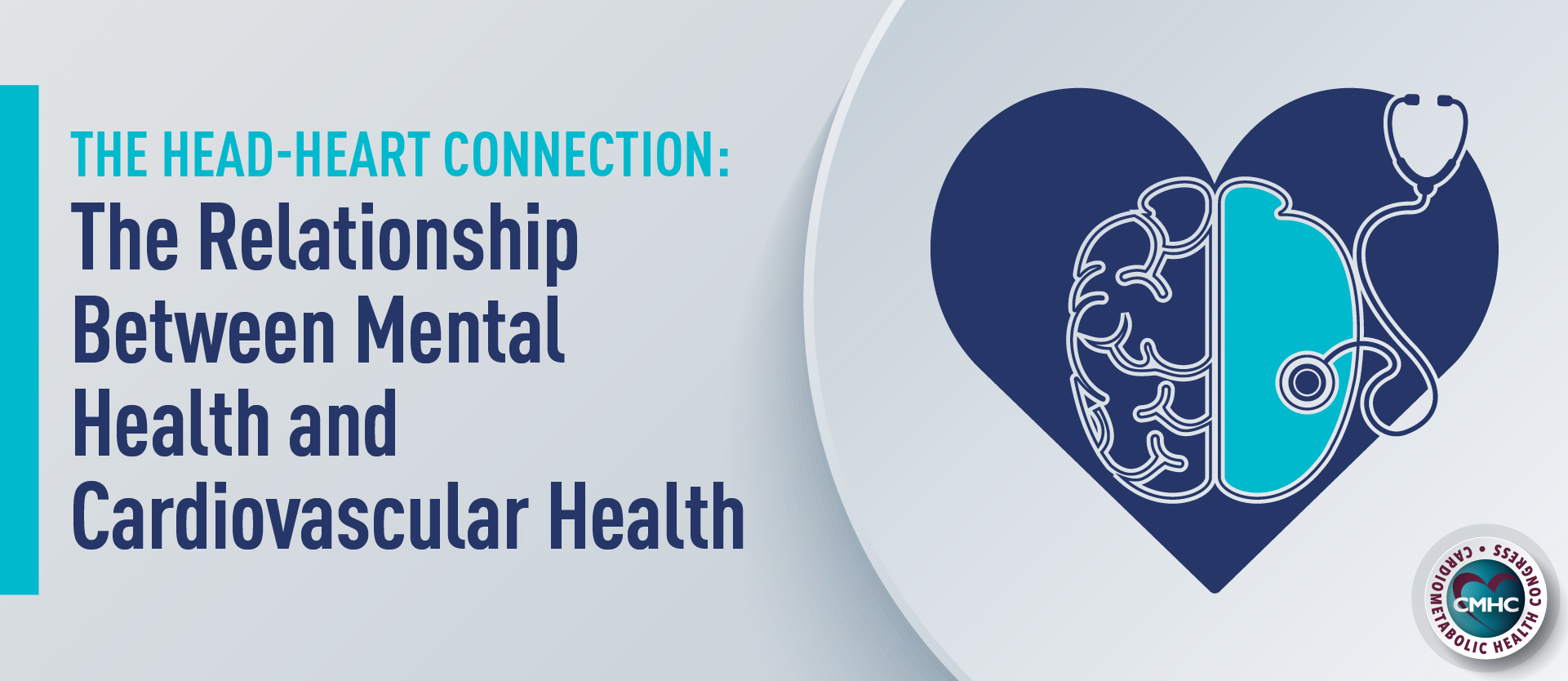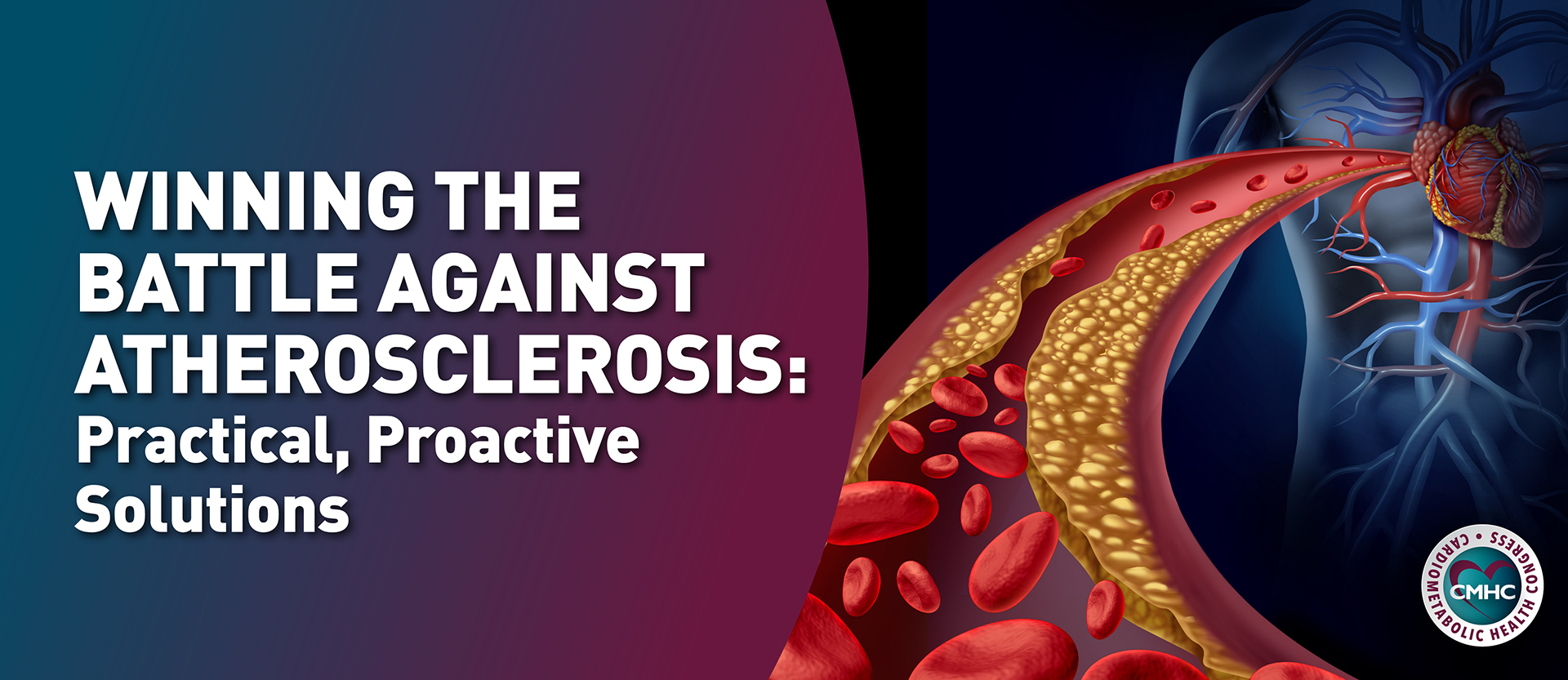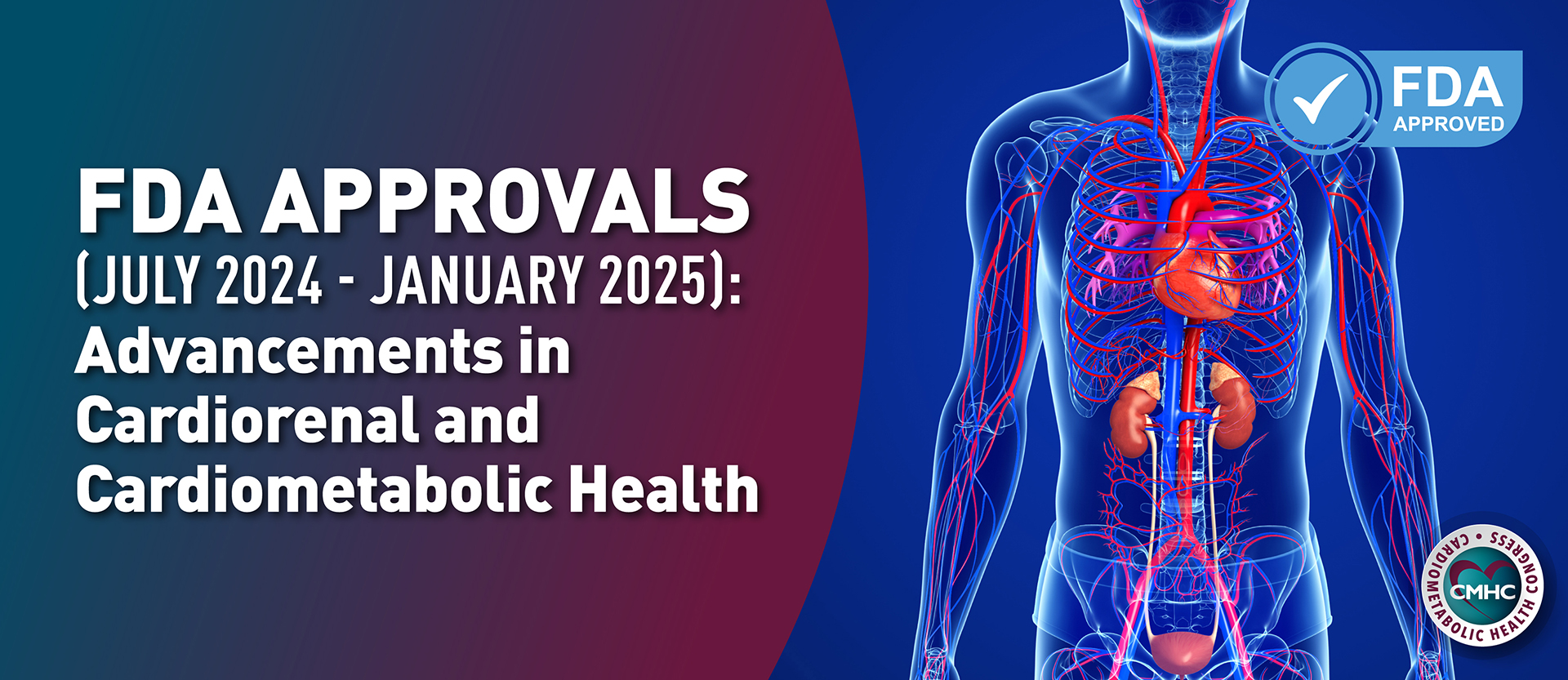“A record of our emotional life is written on our hearts,” shared cardiologist and author Dr. Sandeep Jauhar in a 2019 Ted Summit presentation now viewed over four million times. He continued, “emotions can and do have a direct physical effect on the human heart.”
Both mental health disorders and cardiovascular diseases are highly prevalent in the global population. These conditions can often occur together as they share risk factors and can impact the same biological pathways, areas of the body, and lifestyle behaviors. Meanwhile, biological and chemical variables that trigger mental health issues can also influence cardiovascular disease and other facets of cardiometabolic health. Certain risk factors associated with cardiometabolic disease, such as poor dietary habits, lack of physical activity, and smoking, are also common in individuals with mental health issues.
An extensive and continuously growing body of research reveals the connection between mental health disorders – specifically mood disorders, anxiety, post-traumatic stress disorder (PTSD), and chronic stress – and cardiovascular risk factors.
The Head-Heart Connection
The interplay of cardiovascular health and mental health disorders involves a compounding effect in which one condition can adversely affect the other both directly and indirectly through biological pathways and harmful health behaviors. For instance, evidence suggests that depression, anxiety, and PTSD can develop after heart failure, stroke, and other cardiac events. Mental illnesses can be brought on after acute cardiovascular events due to pain, fear of death or disability, as well as financial concerns related to the event.
At the same time, the physiologic effects of long-term depression, anxiety, stress, and PTSD include cardiac reactivity, reduced blood flow to the heart, as well as heightened cortisol levels. The physiologic reactions associated with mental illness can also contribute to calcium buildup in the arteries provoking the development of cardiometabolic diseases. Furthermore, patients with mental health disorders tend to exhibit high cardiometabolic risk factors with low physical activity levels, poor dietary patterns, and an increased risk for negative lifestyle habits such as substance use and smoking.
In addition, scientific literature notes the potential impact of medications used to treat mental health disorders on cardiometabolic disease risk. While further research is needed to determine the extent of this impact on patients, certain antipsychotic medications have been linked to obesity, insulin resistance, diabetes, cardiovascular events, and even death. However, it is important to weigh the clinical benefits and risks associated with each prescribed medication on an individualized patient basis to ensure the treatment can be safe and effective.
At-Risk Demographics
Studies have found that there are specific populations which experience higher rates of cardiovascular disease from mental health disorders. For example, veterans have been proven to experience a heightened risk for heart disease primarily as a result of PTSD due to combat, while women with PTSD and depression may suffer from adverse physical health effects, particularly an increased risk for coronary heart disease-related morbidity and mortality.
An often overlooked demographic, partners of individuals with PTSD also face an increased cardiovascular risk. Research has shown that couples in which one or both partners had PTSD experienced more severe conflict, greater levels of anger, and heightened cardiovascular reactivity to conflict than those in which the condition is not present. Anger and the associated physiological stress responses to couple discord can influence coronary heart disease and other cardiovascular disease risk within these relationships.
As evidenced by poorer health outcomes and higher rates of cardiometabolic conditions in these groups, racial and ethnic minorities experience a heightened risk for the adverse effects of cardiovascular-mental implications. Studies focused on minority groups have found that depression, stress, and anxiety caused by disparities in social determinants of health alongside prevailing racism/discrimination place these populations at an increased risk for hypertension, cardiovascular reactivity, as well as heart disease.
Addressing Mental and Cardiovascular Health
Early interventions in mental health care alongside adequate access to the appropriate services and support tools focused on promoting positive health behaviors are necessary to reducing the risk of cardiometabolic conditions as well as the risks associated with comorbid cardiovascular-mental disorders.
“The head-heart connection should be on everyone’s radar,” according to Barry Jacobs, Psy.D, a clinical psychologist and director of Behavioral Sciences at the Crozer-Keystone Family Medicine Residency Program. “It’s not just being unhappy. It’s having biochemical changes that predispose people to have other health problems, including heart problems,” he told the American Heart Association in an interview.
Clinicians are encouraged to discuss the relationship between mental health and cardiovascular disease with their patients and implement mental health screening and treatment into care strategies as part of a personalized medical approach. Additionally, at-risk patients should be routinely monitored to assess the prevalence of risk factors and relevant health markers.
Key Takeaways
Current literature underscores the often overlooked connection between cardiovascular and mental health, revealing the intersection of compounding risk factors and lifestyle behaviors that adversely affect cardiometabolic health. Specific populations, such as veterans, women, and racial and ethnic minorities, experience an increased risk for these effects and should be routinely monitored to improve health outcomes.















